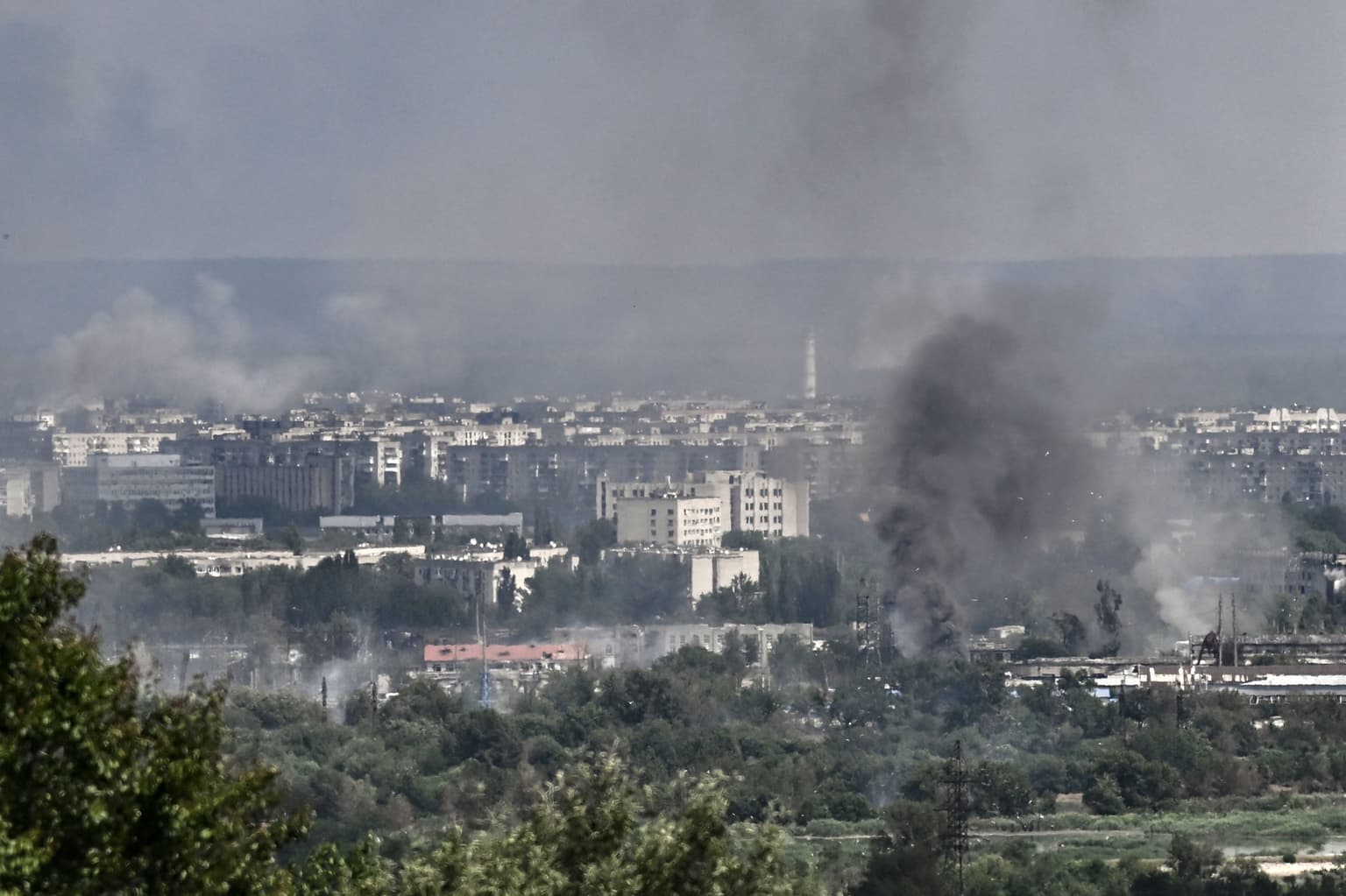After weeks of bloody street fighting and months of withering bombardment, Sievierodonetsk is now “fully occupied” by Russian forces, its mayor, Oleksandr Striuk, said on June 25.
With Ukrainian troops’ withdrawal from Sievierodonetsk, the fighting now shifts to neighboring Lysychansk, the last Ukrainian-held city in the region. Capturing Sievierodonetsk brings Moscow closer to taking full control of Luhansk Oblast, 95% of which is already under the control of Russian forces.
The mayor’s report came a day after Luhansk Oblast Governor Serhiy Haidai announced that Ukrainian troops would retreat from the charred ruins that were once home to over 100,000 people. The retreat was a “tactical withdrawal” to be able to launch more effective counterattacks from Lysychansk, according to Kharyton Starskyi, a press officer with the Rapid Response Brigade of Ukraine's National Guard.
Starskyi said Ukraine had begun withdrawing troops from Sievierodonetsk days ago, to preserve their lives.
Lysychansk sits on the opposite bank of the Siversky Donets River from Sievierodonetsk. The Russian forces have taken many losses in their attempts to ford the river over the past two months of fighting. Ukraine will utilize Lysychansk's higher ground to defend against the continued Russian onslaught, Ukraine's intelligence chief Kyrylo Budanov told Reuters.
On their Telegram channels, Russian proxies claimed that Moscow’s forces are now attacking Lysychansk. Russia’s Interfax news agency also reported that its troops have entered the city.
Haidai said that Russian forces are trying to blockade Lysychansk from the south. Despite Ukrainian forces' fierce resistance, the Russians are making incremental gains in the Donbas against outnumbered and outgunned Ukrainian army.
Haidai said that Russia attacked Sievierodonetsk and Lysychansk with airstrikes and artillery, striking the Azot chemical plant, which has been sheltering several hundred people.
According to mayor Stryuk, civilians trapped in the plant started to evacuate, stressing that they are in need of medical and psychological support. Russian proxies claimed that they've taken control of the industrial site, Ukraine’s last holdout in the city, and “evacuated” more than 800 civilians sheltering there.
About 12,000 civilians remain in Sievierodonetsk, without access to water, electricity or gas, Haidai told the Associated Press in mid-June.
Russia still faces serious obstacles in its campaign to capture Donbas, an industrial heartland comprised of Donetsk and Luhansk oblasts. Ukraine still controls almost half of Donetsk Oblast including Sloviansk and Kramatorsk, both of which are heavily fortified cities that are larger than Sievierodonetsk.
In the meantime, Russia launched dozens of cruise missiles hitting military facilities in western and northern Ukraine early on June 25, local authorities said. The missiles came from across the Belarusian border and from the Black Sea, according to reports.
The missile strikes came hours before Russian dictator Vladimir Putin met with his Belarusian counterpart Alexander Lukashenko in St. Petersburg. Belarusian forces are currently conducting military drills near the Ukrainian border.
Ukraine’s military intelligence agency called the barrage of missile attacks “a large-scale provocation by Russia for the purpose of further dragging Belarus into the war against Ukraine.” Though Western analysts say it’s unlikely that Belarus would join Russia’s war efforts, Lukashenko’s room for political maneuver is limited as he relies on the Kremlin’s support to hold on to power.
In his evening address on June 25, President Volodymyr Zelensky urged nations to send Ukraine air defense systems in response to continued Russian missile attacks.
Ukraine is in a phase of the war that is “morally (and) emotionally difficult,” Zelensky said in the video posted on Telegram.











